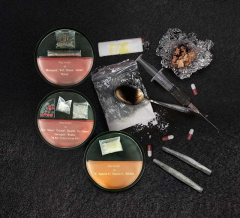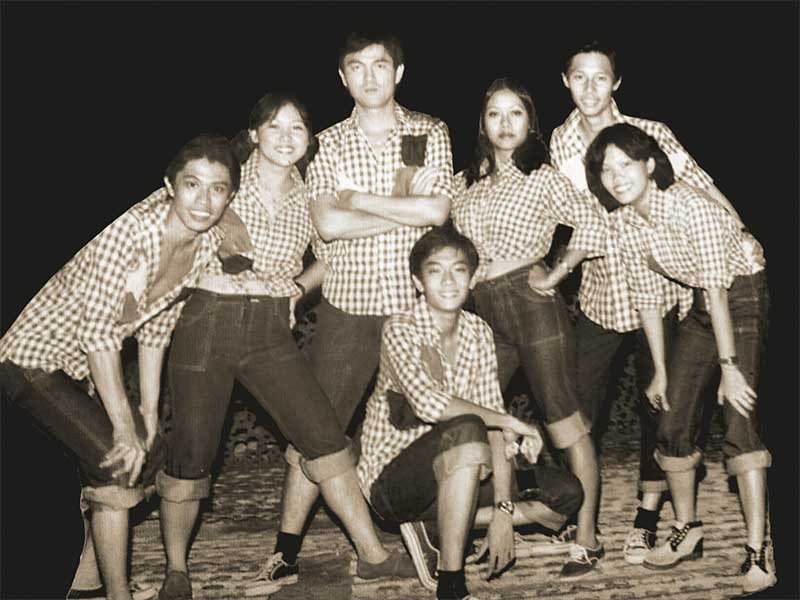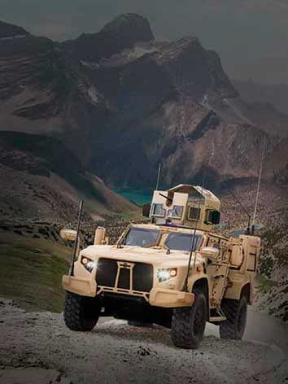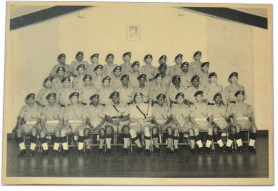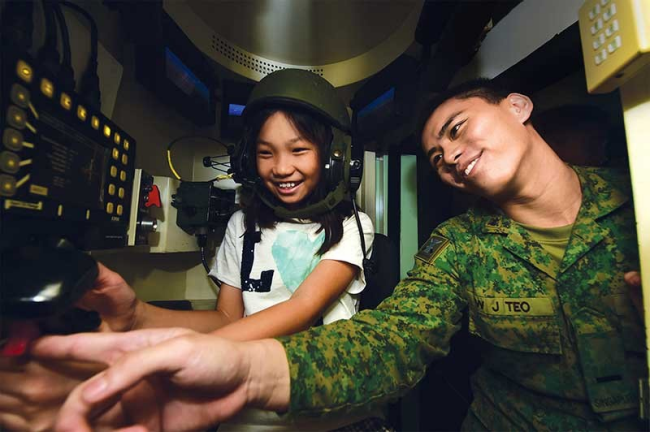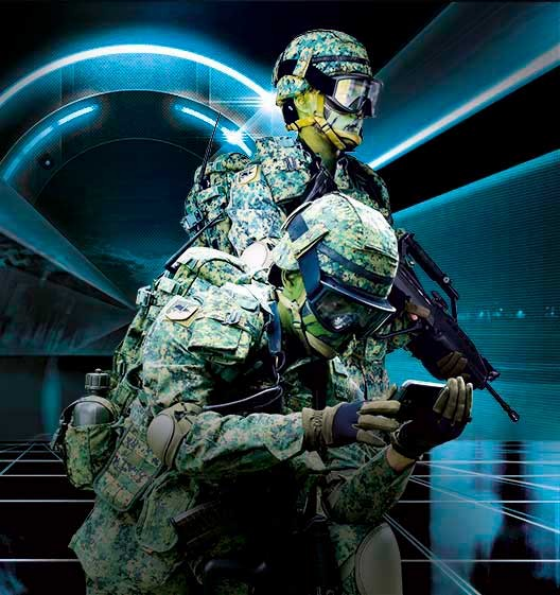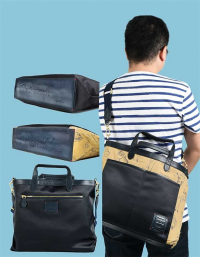Worrying trends
The Central Narcotics Bureau (CNB) reported an eight percent increase in the number of drug abusers arrested in the first half of 2015, compared with the same period in 2014. Of this group, those aged below 20, and between 20 and 29 formed 39 percent of the total number.
This trend is cause for concern for the SAF, since many of the young men among them will go on to be enlisted as Full-time National Servicemen (NSFs).
Thus, the SAF has developed a comprehensive Preventive Drug Education (PDE) programme in order to keep its young soldiers fighting fit, and to curb the spread of destructive behaviour in camps.
Reaching out to youth
PDE begins early for NSFs. Upon enlistment, recruits at the Basic Military Training Centre are given talks on topics such as the different types of drugs and the harmful effects of drug abuse.
To reach out to the recruits effectively, counsellors from the SAF Counselling Centre (SCC), which organises these talks, have to keep abreast of the latest trends in drug use.
"Ten years ago, most local drug abusers used synthetic drugs, namely Ecstasy, Ice (methamphetamine), ketamine and erimin. Nowadays, Ice is still very popular, but we also see a trend of servicemen abusing marijuana," said Mr Ang Leong Han, a Principal Counsellor at the SCC. He has been a counsellor in the SAF for more than 30 years and specialises in cases of substance abuse.
In addition, the demographic of drug abusers is shifting. This means that counsellors must update their knowledge so as to better relate to them. Mr Ang explained: "The profile of marijuana abusers is quite different. They tend to come from better socio-economic backgrounds and are better educated. Most do their research on the Internet and think that marijuana is less harmful, and so they try it out.
"Because of this, they often challenge us (about the effects). In such cases, we acknowledge their findings (that there are no withdrawal symptoms to marijuana use), but we explain that marijuana affects the brain and memory, especially for younger abusers."
"It's tough to quit alone. Drug abusers need someone to guide and teach them proper skills to handle their cravings and prevent relapses."
- Mr Ang, a Principal Counsellor with more than 30 years of experience working with substance abusers.
Second chance
The punishment for soldiers caught abusing drugs is severe, ranging from nine to 15 months' incarceration in the SAF Detention Barracks for first-time offenders, to civil imprisonment and caning for repeat offenders.
For offenders who were caught while in service or by CNB prior to enlistment, the SCC works hand-in-hand with families and commanders to keep them on the straight and narrow.
Mr Ang explained: "We enlist the help of family members and commanders to monitor them and take note of signs of relapse. Signs include staying in the toilet for long periods of time, sudden mood changes, overeating (for marijuana abusers) or not eating or sleeping (for Ice abusers)."
However, the SAF offers an opportunity to come clean. Under the SAF Amnesty Scheme, offenders who confess to drug-taking on their own accord will not face punishment, but will receive counselling and rehabilitation.
"It's difficult for drug abusers to quit on their own. They need someone to guide them and teach them proper skills to handle their cravings and prevent relapses," said Mr Ang on the motivation for implementing the scheme and providing a confidential channel for soldiers who are trying to quit the habit.
Servicemen who wish to make a confession can approach their unit medical officers and commanders, orientation officer or paracounsellor. They can also call the SAF counselling hotline (1800-278-0022).
One time too many
Adam (not his real name), a 21-year-old graduate from a local polytechnic, discovers that just once is enough for vigilant police officers.
"A friend I'd known since polytechnic asked if I wanted to smoke weed together. At that time, I thought, why not? In my head, it wasn't addictive, so it's less harmful than alcohol and better than hardcore drugs like Ice.
I knew that if I got caught, I was going to die, but I didn't believe I would be so unlucky.
We went to a sheltered area near his house and he took out the marijuana. He smoked a few puffs before passing it to me. I think I smoked about three puffs. I felt very high; everything felt very slow-mo and weird. After that, I stopped. I told him I didn't want any more, so he finished it.
As we were walking away, two policemen approached us. They told us to empty our pockets, and found a joint in his cigarette box. I had nothing, so they told me I was cleared. But as I was high at that time, I don't think I reacted properly to that. That's when they suspected I had taken the drug with him.
We were taken to the Police Cantonment Complex, where my urine test came out positive for substance use. Then I got locked up for a day. I was very scared because I thought I would be jailed for a long time.
In the lock-up room, an hour felt like 24, and 24 hours felt like a week. I cried a few times worrying about how I would lose my university placing, my family would look down on me and my friends would despise me. Eventually, my father bailed me out.
After that, I couldn't sleep because I was afraid I would be jailed. Subsequently, I enlisted and was told that I would not be charged; instead, I would be placed under supervision order and attend counselling at the SCC. I was relieved. During counselling, I learnt the dangers of marijuana and how I could avoid it.
When I enlisted, I confessed to my Platoon Sergeant that I had been caught for smoking marijuana. Surprisingly, he didn't give up on me. My company also knew, but did not treat me differently. I was motivated and went on to do well during training.
I know that I won't go back to drugs. My family and friends also trust that I will stay clean. Their faith is my support. If I could turn back time, I wouldn't have done it.
Looking back. I am thankful that I was caught. If I hadn't gotten caught, I might have continued to smoke marijuana. Then I wouldn't be here; I might be in a drug rehabilitation centre."
"I feel carefree now that I'm drug-free. I know that I won't go back to drugs. My family and friends also trust that I will stay clean."
- Former substance-abuser Adam (not his real name)
